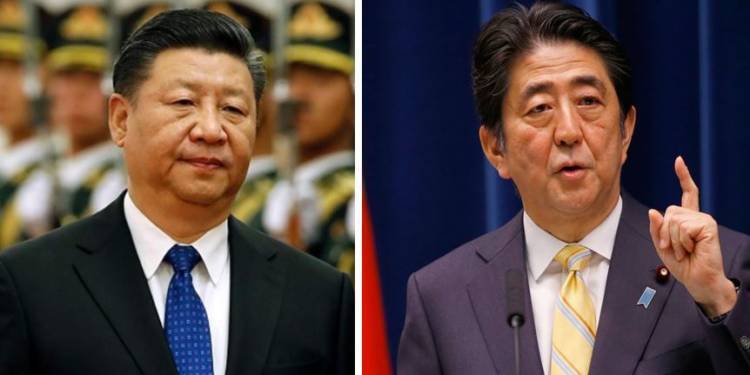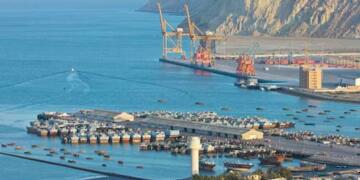Japan and China are headed for a major military clash near Japan’s Senkaku island chain, located in the East China Sea. China claims sovereignty over the Senkaku islands and calls them the Diaoyu Islands. But now, owing to Chinese assertiveness, and its latest threat, Tokyo has put its military on standby to ward off any Chinese military adventure.
As per Sankei, a Japanese newspaper, tensions have escalated after Beijing told Tokyo that its ban on Chinese fishing boats operating in the waters is going to expire on August 16. According to reports, Beijing is claiming sovereignty over Japan’s Senkaku Islands, its territorial waters and the contiguous zone. Beijing is now asserting that Japan has no right to demand that Chinese fishing boats halt their activities.
Japan is now bracing for hordes of Chinese fishing boats to intrude into Japanese waters around the Senkaku islands. Beijing is bound to escalate tensions by encouraging fishing boats to enter the Japanese maritime space backed by Chinese coastguard vessels. According to an SCMP report, the number of ships that enter Japanese waters is pegged at 100.
These fishing vessels or fleets can turn out to be surprisingly hostile and dangerous. Designed as ostensibly benign fishing fleets, many of the boats in such fleets are part of the Chinese maritime militia, properly trained and educated to ward off potentially armed hostilities and to also exert dominance in the region by scaring off fishermen, stealing their fish and claiming authority over the sovereign boundaries of other nations.
Meanwhile, Japan’s Defence Minister Taro Kono has weaponized Beijing’s illegal claims and its ‘nine-dash line’ claim in the South China Sea. Kono has said, “Anyone who is trying to change the status quo by force needs to be forced to pay a high cost.” Japan’s Defence Minister also said that Chinese installations in the South China Sea are “destabilising“.
Japan has even virtually threatened to open a new front following Beijing’s threats of violating Japanese sovereignty in the East China Sea. Kono himself held a press conference last week, during which he said that the country’s Self-Defence Forces units are ready to respond. However, the Japanese Defence Minister has refused to reveal the details about the units that might be pressed into action and the kind of action that could be taken.
Japan is clearly fuming at this Chinese provocation. Sankei has quoted a senior Japanese government official as hitting back at Beijing’s warning as a “vengeful declaration of intent and a strategic move designed to justify provocations after the end of the fishing ban”.
Experts interpret Beijing’s latest warning as a major security threat for Japan. Garren Mulloy, a Professor of international relations at Daito Bunkyo University and an expert in regional security issues, said, “It appears very much as if China is attempting to supplant Japan’s coastguard in those waters in terms of their ability to control and safeguard other ships,”
The Senkaku islands are already turning out to be a huge flashpoint between Japan and China. The dispute over the archipelago is longstanding between Beijing and Tokyo. Japan has been administering the Senkaku islands since 1972 and also bought them from a private owner in 2012.
The Islands are located strategically- far away from Japan and close to China. Therefore, the Senkaku constitute a major geostrategic advantage for Tokyo. The Islands serve as an unsinkable aircraft carrier for Japan, close to mainland China. It is for this reason that Beijing has been trying to constantly undermine Japan’s position in the Senkaku islands.
China has been exerting pressure near the Senkaku islands for the last eighteen months by inserting ships into Japanese waters near the disputed archipelago at will and ignoring requests to leave. Only until very recently, Chinese vessels were hovering around the Senkaku islands for a record 111 days and left only because of a typhoon.
But with its plans to overwhelm Japanese territorial waters with militias masquerading as fishing boats, China is escalating matters to an entirely new level. Meanwhile, Japan is also preparing to give China a bloody nose.
Beijing wants to punish Japan as the Chinese economy is in tatters, partly because the Shinzo Abe government is encouraging Japanese companies to move manufacturing bases away from China.
Beijing is, however, inviting deep trouble for itself by recklessly pushing the envelope in the East China Sea.




























good work coming back home goverment